Contact Name: Stephanie DeLong Email: sdelong2@jhmi.edu The CFAR Adolescent and Young Adult International Scientific Working Group meeting on the 1st Thursday of each month, 10:30am-11:30am . Please contact Stephanie DeLong […]
Calendar of Events
|
Sunday
|
Monday
|
Tuesday
|
Wednesday
|
Thursday
|
Friday
|
Saturday
|
|---|---|---|---|---|---|---|
|
0 events,
|
0 events,
|
0 events,
|
0 events,
|
2 events,
Are you an Early-Stage Investigator who is writing or thinking about writing a grant related to TB, HIV, and/or stigma? The JHU TRAC, CFAR and CHIMES Centers are re-launching our […] |
1 event,
The Center for AIDS Research and the AIDS Education and Training Center are collaborating to provide clinicians and investigators with information on current research, topics of interest as well as clinical updates. […] |
0 events,
|
|
0 events,
|
1 event,
Contact Name: Eileen Martin Email: emarti77@jhmi.edu Mission Statement The mission of the JHU CFAR’s Adolescent and Young Adult SWG is to promote interdisciplinary research collaborations across the intersecting domains of […] |
2 events,
-
The JHU CFAR Biostatistics and Epidemiology Methodology (BEM) Core is now offering monthly, virtual office hours. Office hours are intended to provide space and time for earlier engagement in the […] We are pleased to announce that the December Implementation Science Monthly Rounds (ISMR) will be held on Tuesday 12/09/25 from 12-1pm E.T and feature Dr Jessica Corcoran. Dr. Corcoran is […] |
0 events,
|
0 events,
|
1 event,
The Center for AIDS Research and the AIDS Education and Training Center are collaborating to provide clinicians and investigators with information on current research, topics of interest as well as clinical updates. […] |
0 events,
|
|
0 events,
|
1 event,
Contact Name: Eileen Martin Email: emarti77@jhmi.edu HAMR meets on the 3rd Monday, every other month from 11:00am - 12:00pm |
0 events,
|
0 events,
|
1 event,
-
ORCiD and SciENcv for Biosketches and Current/Other Support: Training on new Common Forms for NIH submissions and RPPRs submitted on/after January 25th, 2026 On Thursday, December 18th from 2-3pm, join the […] |
1 event,
The Center for AIDS Research and the AIDS Education and Training Center are collaborating to provide clinicians and investigators with information on current research, topics of interest as well as clinical updates. […] |
0 events,
|
|
0 events,
|
1 event,
The CFAR Leadership Meeting meets on the 4th Monday of every month from 11:00 AM - 12:00 PM EST. Contact Name: Eileen Martin Email: emarti77@jhmi.edu |
0 events,
|
0 events,
|
1 event,
Conversation, Advice, and Topics about Cognition with HIV Join the Baltimore-Washington CATCH Support Group, to share support, listen to stories of courage, and learn more about brain changes associated with life with HIV! Meeting […] |
2 events,
The Center for AIDS Research and the AIDS Education and Training Center are collaborating to provide clinicians and investigators with information on current research, topics of interest as well as clinical updates. […] The CFAR Central Nervous System Dysfuction Scientific Working Group meets on the 4th Friday of every month from 2:00 - 3:00 PM EST Contact Name: Eileen Martin Email: emarti77@jhmi.edu |
0 events,
|
|
0 events,
|
0 events,
|
0 events,
|
0 events,
|
1 event,
Contact Name: Stephanie DeLong Email: sdelong2@jhmi.edu The CFAR Adolescent and Young Adult International Scientific Working Group meeting on the 1st Thursday of each month, 10:30am-11:30am . Please contact Stephanie DeLong […] |
1 event,
The Center for AIDS Research and the AIDS Education and Training Center are collaborating to provide clinicians and investigators with information on current research, topics of interest as well as clinical updates. […] |
0 events,
|

